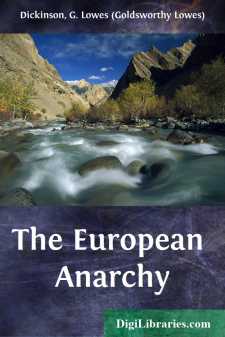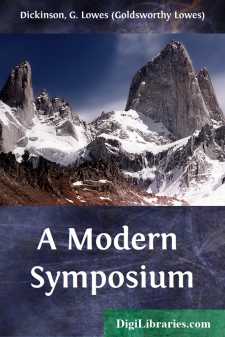Categories
- Antiques & Collectibles 13
- Architecture 36
- Art 48
- Bibles 22
- Biography & Autobiography 813
- Body, Mind & Spirit 142
- Business & Economics 28
- Children's Books 15
- Children's Fiction 12
- Computers 4
- Cooking 94
- Crafts & Hobbies 4
- Drama 346
- Education 46
- Family & Relationships 57
- Fiction 11828
- Games 19
- Gardening 17
- Health & Fitness 34
- History 1377
- House & Home 1
- Humor 147
- Juvenile Fiction 1873
- Juvenile Nonfiction 202
- Language Arts & Disciplines 88
- Law 16
- Literary Collections 686
- Literary Criticism 179
- Mathematics 13
- Medical 41
- Music 40
- Nature 179
- Non-Classifiable 1768
- Performing Arts 7
- Periodicals 1453
- Philosophy 64
- Photography 2
- Poetry 896
- Political Science 203
- Psychology 42
- Reference 154
- Religion 513
- Science 126
- Self-Help 84
- Social Science 81
- Sports & Recreation 34
- Study Aids 3
- Technology & Engineering 59
- Transportation 23
- Travel 463
- True Crime 29
The European Anarchy
Description:
Excerpt
THE EUROPEAN ANARCHY
1. Introduction.
In the great and tragic history of Europe there is a turning-point that marks the defeat of the ideal of a world-order and the definite acceptance of international anarchy. That turning-point is the emergence of the sovereign State at the end of the fifteenth century. And it is symbolical of all that was to follow that at that point stands, looking down the vista of the centuries, the brilliant and sinister figure of Machiavelli. From that date onwards international policy has meant Machiavellianism. Sometimes the masters of the craft, like Catherine de Medici or Napoleon, have avowed it; sometimes, like Frederick the Great, they have disclaimed it. But always they have practised it. They could not, indeed, practise anything else. For it is as true of an aggregation of States as of an aggregation of individuals that, whatever moral sentiments may prevail, if there is no common law and no common force the best intentions will be defeated by lack of confidence and security. Mutual fear and mutual suspicion, aggression masquerading as defence and defence masquerading as aggression, will be the protagonists in the bloody drama; and there will be, what Hobbes truly asserted to be the essence of such a situation, a chronic state of war, open or veiled. For peace itself will be a latent war; and the more the States arm to prevent a conflict the more certainly will it be provoked, since to one or another it will always seem a better chance to have it now than to have it on worse conditions later. Some one State at any moment may be the immediate offender; but the main and permanent offence is common to all States. It is the anarchy which they are all responsible for perpetuating.
While this anarchy continues the struggle between States will tend to assume a certain stereotyped form. One will endeavour to acquire supremacy over the others for motives at once of security and of domination, the others will combine to defeat it, and history will turn upon the two poles of empire and the balance of power. So it has been in Europe, and so it will continue to be, until either empire is achieved, as once it was achieved by Rome, or a common law and a common authority is established by agreement. In the past empire over Europe has been sought by Spain, by Austria, and by France; and soldiers, politicians, and professors in Germany have sought, and seek, to secure it now for Germany. On the other hand, Great Britain has long stood, as she stands now, for the balance of power. As ambitious, as quarrelsome, and as aggressive as other States, her geographical position has directed her aims overseas rather than toward the Continent of Europe. Since the fifteenth century her power has never menaced the Continent. On the contrary, her own interest has dictated that she should resist there the enterprise of empire, and join in the defensive efforts of the threatened States. To any State of Europe that has conceived the ambition to dominate the Continent this policy of England has seemed as contrary to the interests of civilization as the policy of the Papacy appeared in Italy to an Italian patriot like Machiavelli....






